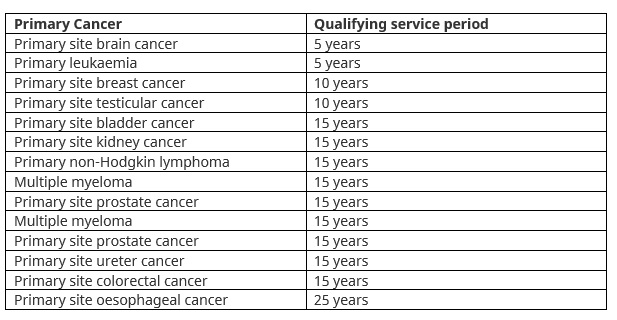- within Strategy and Law Practice Management topic(s)
- with Senior Company Executives, HR and Finance and Tax Executives
- with readers working within the Insurance and Construction & Engineering industries
The passing of the Workers Compensation Legislation Amendment (Firefighters) Bill 2018 has significantly eased the process for firefighters in New South Wales to claim compensation for cancer developed during their service.
Rather than being required to demonstrate that their diagnosis of cancer arose out of or in their employment, and that their employment was the substantial contributing factor, it will be automatically presumed in certain circumstances.
Several international and national studies have shown that firefighters are at much greater risk of developing certain cancers, due to their exposure to hazardous toxins and carcinogens whilst on the job.
Monash University conducted their own study in 2014 based on career, part-time and volunteer firefighters in which it confirmed that the incidence of cancer was significantly raised for career firefighters, particularly male firefighters, compared to the general population. The incidence of cancer was significantly raised for male career firefighters who worked for 20 years or more. The most prevalent cancers that were statistically higher included prostate cancer, melanoma and kidney cancer.
The legislation now covers 12 specific primary cancers. If a firefighter meets the required qualifying service period of any of these cancers, it is presumed that their cancer is due to their firefighting employment.
The presumption applies to both paid and volunteer firefighters, including current and formers members of the following organisations:
- Fire and Rescue NSW
- NSW Rural Fire Service
- Office of Environment and Heritage (NSW National Parks and Wildlife Service)
- Forestry Corporation of NSW
- Sydney Trains
The 12 primary cancers and their corresponding qualifying service periods include:

The cancer must be a "primary site" cancer, with the exception of myeloma and leukaemia. Thus, if the cancer has metastasized from another type into one of the above cancers, the presumptive legislation will not apply. Whilst the presumptive legislation may not apply, it does not prohibit a firefighter from pursuing a workers compensation claim.
This presumption applies to firefighters diagnosed on or after 27 September 2018. Those diagnosed before this date are not covered by the presumption, but still may have rights to pursue a workers compensation claim.
Employers are still entitled to challenge the presumption by proving that the cancer is not related to the firefighter's work.
Even if a firefighter does not meet the qualifying service period, they can still pursue a claim, although the presumptive legislation will not apply. For example, in the case of Sinclair v State of New South Wales (Fire & Rescue) [2024] NSWPIC 75, Mr Sinclair successfully demonstrated that his six years of services with Fire & Rescue NSW was a substantial contributing factor to his diagnosis of prostate cancer.
The content of this article is intended to provide a general guide to the subject matter. Specialist advice should be sought about your specific circumstances.


